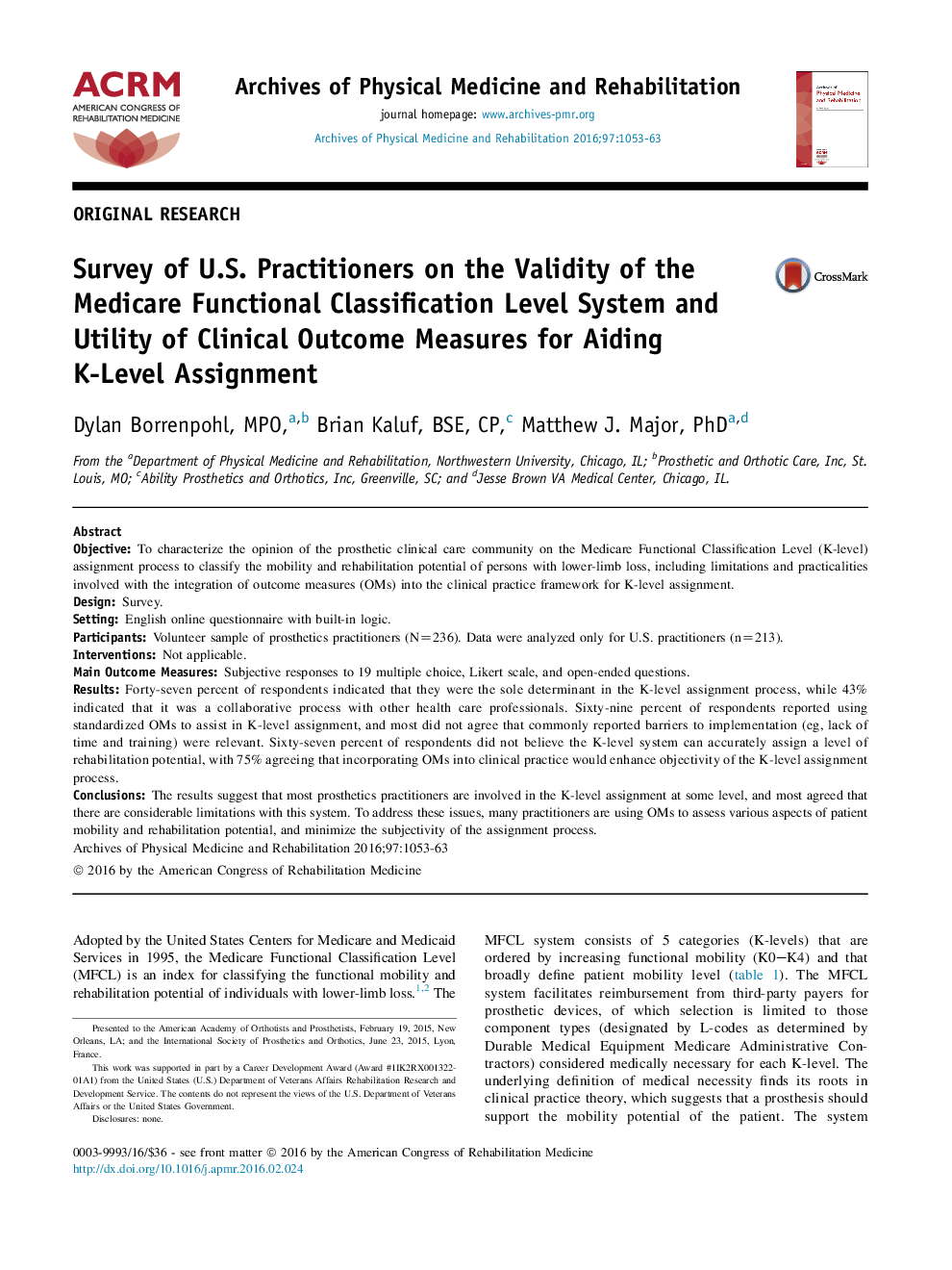| Article ID | Journal | Published Year | Pages | File Type |
|---|---|---|---|---|
| 3447826 | Archives of Physical Medicine and Rehabilitation | 2016 | 11 Pages |
ObjectiveTo characterize the opinion of the prosthetic clinical care community on the Medicare Functional Classification Level (K-level) assignment process to classify the mobility and rehabilitation potential of persons with lower-limb loss, including limitations and practicalities involved with the integration of outcome measures (OMs) into the clinical practice framework for K-level assignment.DesignSurvey.SettingEnglish online questionnaire with built-in logic.ParticipantsVolunteer sample of prosthetics practitioners (N=236). Data were analyzed only for U.S. practitioners (n=213).InterventionsNot applicable.Main Outcome MeasuresSubjective responses to 19 multiple choice, Likert scale, and open-ended questions.ResultsForty-seven percent of respondents indicated that they were the sole determinant in the K-level assignment process, while 43% indicated that it was a collaborative process with other health care professionals. Sixty-nine percent of respondents reported using standardized OMs to assist in K-level assignment, and most did not agree that commonly reported barriers to implementation (eg, lack of time and training) were relevant. Sixty-seven percent of respondents did not believe the K-level system can accurately assign a level of rehabilitation potential, with 75% agreeing that incorporating OMs into clinical practice would enhance objectivity of the K-level assignment process.ConclusionsThe results suggest that most prosthetics practitioners are involved in the K-level assignment at some level, and most agreed that there are considerable limitations with this system. To address these issues, many practitioners are using OMs to assess various aspects of patient mobility and rehabilitation potential, and minimize the subjectivity of the assignment process.
